“It starts to get tense about this time…”
|
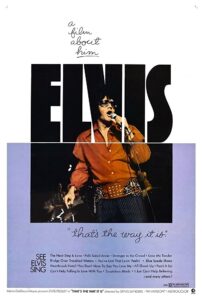
Synopsis:
Elvis Presley rehearses in Culver City for upcoming performances in Las Vegas.
|
|
Genres, Themes, Actors, and Directors:
- Concert Films
- Elvis Presley Films
Review:
Elvis Presley’s first non-dramatic movie since starting his Hollywood career in 1956 with Love Me Tender was this highly enjoyable concert film, directed by Denis Sanders and shot by DP Lucien Ballard. It offers an invaluable glimpse into Elvis-behind-the-scenes — messing around with his songs (he knew what he wanted, musically speaking); making people (and himself) laugh; yodeling just for yuks; chatting; and revealing both charm and humanity in spades. Once the film finally shifts to his vigorous performances (cut from six nights) in Las Vegas, it’s a little sad to leave the backstage Presley behind — though he more than delights with each song and audience interaction. It seems he was at his peak here, relaxed and fit and not-at-all callow, making it especially tragic to know what was to come. Indeed, it’s made pretty clear here how and why Presley died at the (relatively) young age of 42: he’s giving everything he has and more; one imagines a performer only has so much of that kind of authenticity to spend before it runs out.
Redeeming Qualities and Moments:
- So many memorable moments and songs
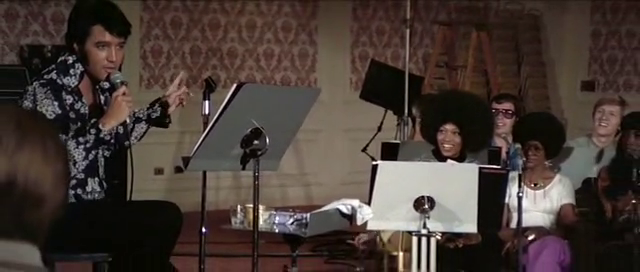

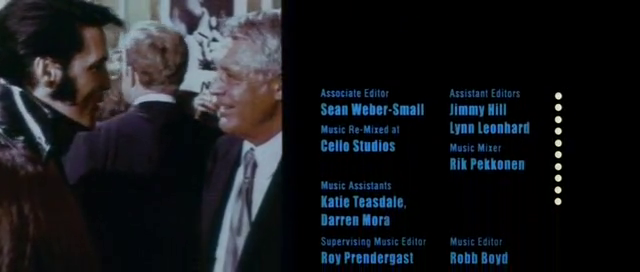
- Lucien Ballard’s cinematography
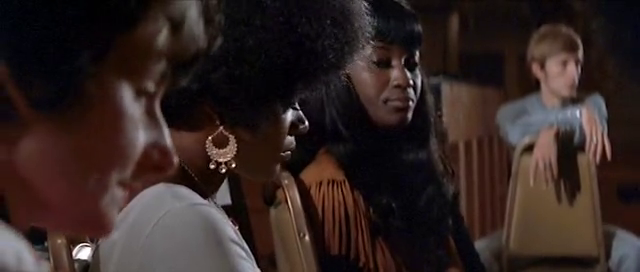
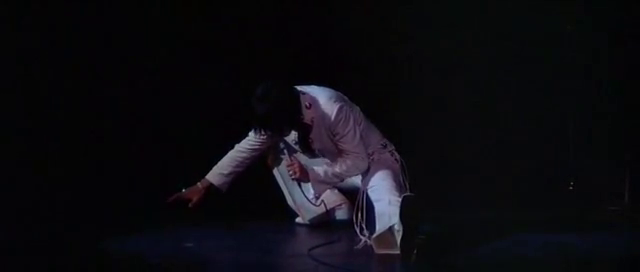
Must See?
Yes, as a most enjoyable concert film/documentary.
Categories
Links:
|
One thought on “Elvis: That’s the Way It Is (1970)”
First viewing. A once-must, for its place in cinema / music history – though Presley fans will appreciate it most.
This is a rather successful (and certainly well-filmed) overview of what Presley was all about as (at least) a concert performer. Along with some of his better performances as an actor (i.e., in his earlier films), it serves to validate his iconic stature.
~ which reminds me: I’m surprised that Peary didn’t include more of Presley’s later films in his recommendations. Not that they’re great (overall) but – compared with the *way too many* recommendations of, say, Bob Hope or Jerry Lewis movies, they’re certainly more entertaining. … A lot of these ‘Big Personality’ films of the ’50s and ’60s were ones that were shown rather constantly on tv (when kids at the time had only a few tv channels to choose from). The overkill repetition may have convinced some that they were important films of the period when, quite often, they weren’t; they were usually just crowd-pleasing flicks suitable to that era but not holding much in the way of shelf-life.
Personally, I could probably relate to Presley a little more closely because he was directly appealing to a younger crowd. But he was still a ‘Personality’ performer, overall. Much like someone like Frank Sinatra or Johnny Mathis (or a number of others, really), Presley had a ‘specialty’ that worked for him (and clearly for his fans). Whether it was by record company calculation or the artist’s own preference or a combination of both, Presley (certainly in his song selections) rarely strayed from his ‘brand image’ (~ which is why I recall being pleasantly surprised as a kid when he released the powerful ‘In The Ghetto’ – which he performs in this doc; that kind of social statement just *wasn’t* something that Presley normally did).
This is just personal taste but ‘Personality’ singers (or actors, for that matter) don’t generally do a whole lot for me; I much prefer artists who exhibit more of a self-challenging range. But artists who – like Presley – generally stick more to a ‘formula’ can become immensely popular because it’s the dependable formula that can be soothing to a large number of people.